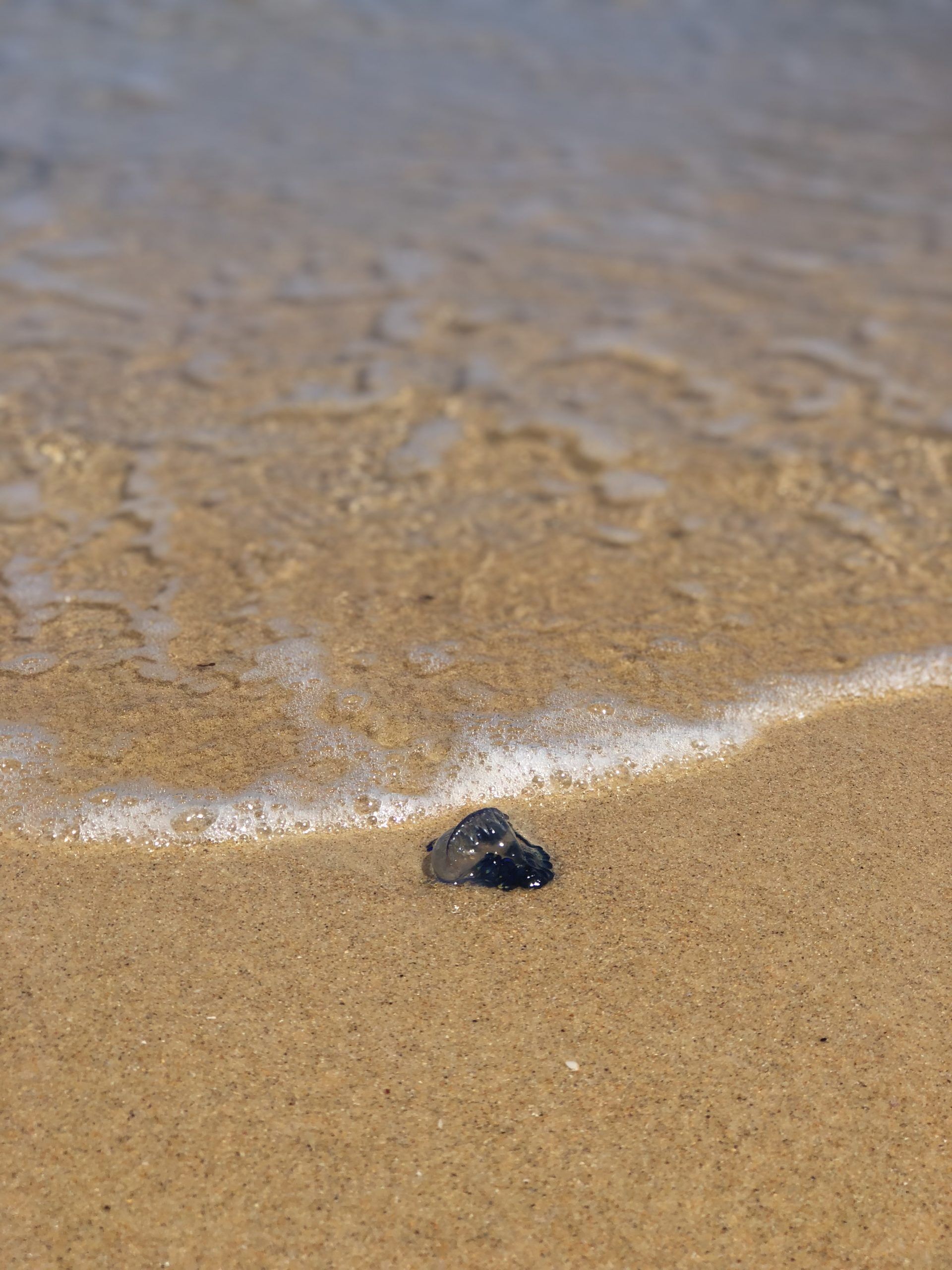When visiting the beach this Summer it’s important to know what to do in the event of a Bluebottle jellyfish sting. Remember to always avoid even washed up or dead Bluebottles as they can still sting you. The following details how you should treat a sting and at what point you should seek medical attention
The Bluebottle is well known for its painful yet rarely fatal sting. The severity of the sting is often in relation to the amount of contact the skin has had with a tentacle. If stung the affected area will develop red welts. Most of the pain subsides after an hour but the welts can remain tender for up to three days later.
Whilst unpleasant they often don’t present any serious medical issues for the everyday person. However, they can be dangerous to the young, elderly or allergy suffers. In these individuals, it can cause fevers, shock, and respiratory distress.
- Sharp localised severe pain occurs immediately after contact, lasting about an hour.
- Usually presents itself as red whip-like lines that remain present roughly 2-3 days.
- Occasionally has a ‘beaded’ appearance, can be itchy and swollen.
- Possible blistering and scarring on the affected area.
- Likely to experience abdominal pain, nausea and vomiting.
- Leave the water immediately.
- Do not rub the sting, or the area surrounding it. This will release more poison.
- The area needs to be thoroughly rinsed by saltwater to remove any lingering invisible stinging cells. Freshwater could add to the irritation.
- Using tweezers, a cloth or wearing gloves remove any remaining tentacles immediately by carefully picking them off.
- Immerse the area where the bluebottle sting has occurred in hot water (45 degrees C) for at least 20 minutes.
- Follow up with a cold pack or ice to constrict the blood vessels slowing the speed the venom can travel through the body. This should reduce the swelling.
- If even after treatment pain, itchiness or blistering continues a doctor should be contacted to prescribe treatments (such as cortisone cream) to reduce the inflammatory reaction.
- Call triple zero if stung over a large area, the throat, eyes or face
- Intense and persisting pain or a worsening rash shouldn’t be ignored.q
References
MYDR

